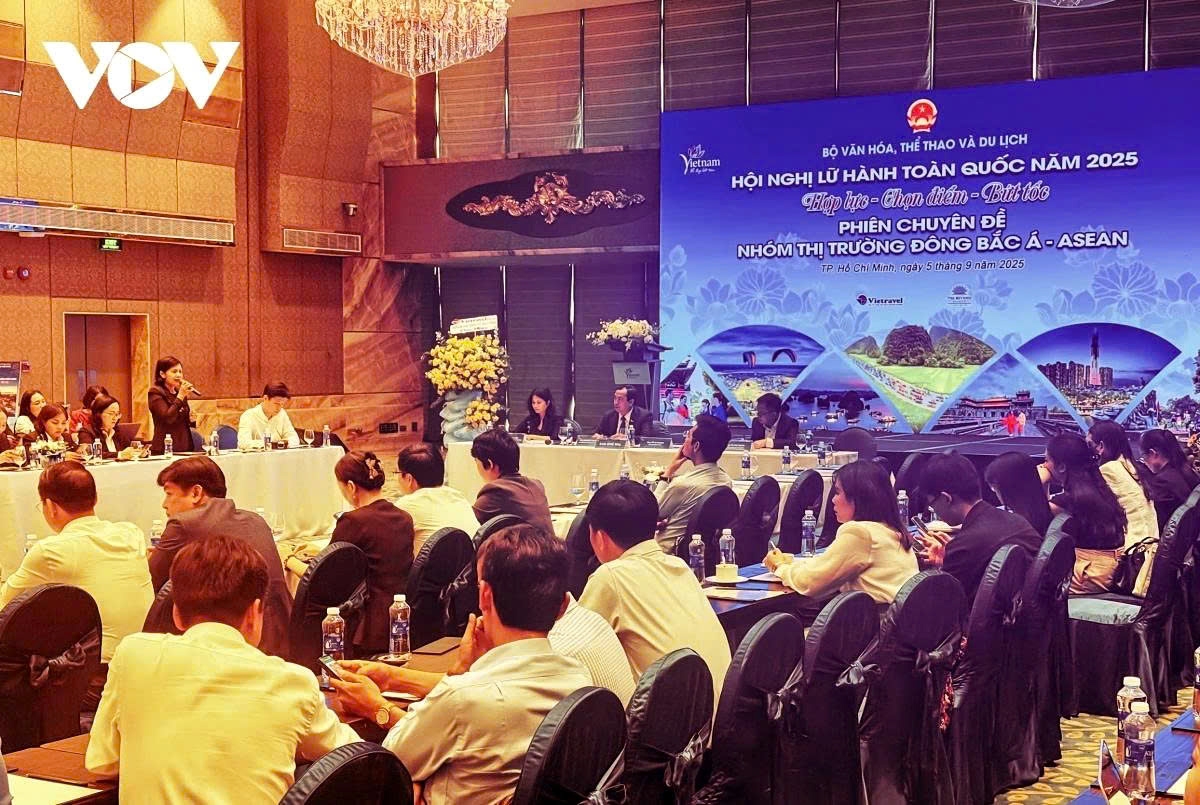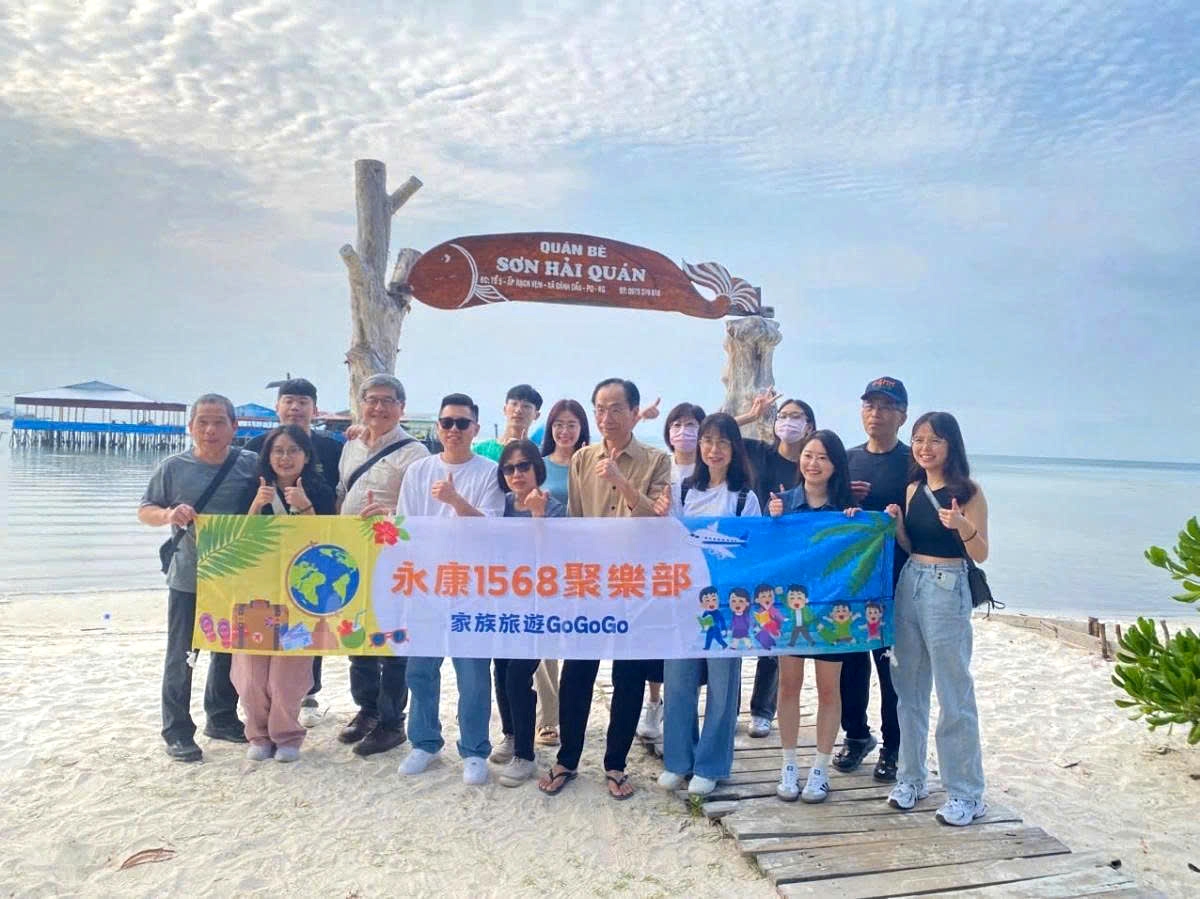Northeast Asia and Southeast Asia – Vietnam’s key tourism markets
VOV.VN - The Northeast Asia and Southeast Asia (ASEAN) regions have been identified as key markets in Vietnam’s tourism strategy to achieve its ambitious goal of welcoming 25 million international visitors in 2025, heard a national travel conference held recently in Ho Chi Minh City.

According to the Vietnam National Authority of Tourism (VNAT), in the first eight months of 2025, visitors from Northeast Asia and Southeast Asia hit approximately 9.7 million, making up 69.8% of Vietnam’s total international tourist intake.
Strong growth was recorded in key markets such as China (3.53 million arrivals, up 44.3% year on year); Japan (539,681, up 17.1%); the Philippines (295.379, up 93.4%); Malaysia (344,048, up 9.8%), Singapore (235,175, up 9.4%), and Cambodia (444,633, up 50.7%).
Meanwhile, traditional markets like the Republic of Korea saw only a slight decline of 3.4%, indicating room for recovery with appropriate strategies.
Experts at the conference shared that these two regions are not only large in volume but are also geographically close, culturally familiar, and well-connected by air routes with Vietnam.
Tourists from these regions also tend to travel in groups, prefer nearby destinations, and seek cultural, culinary, and natural experiences - the areas where Vietnam holds distinct competitive advantages.
VNAT director Nguyen Trung Khanh acknowledged that the Northeast Asia and Southeast Asia regions, with key source markets such as China, the Republic of Korea, Taiwan (China), and ASEAN countries, currently account for the largest proportion of international tourist arrivals to Vietnam.
Vietnam holds many advantages in tapping into these markets, namely low promotion costs, short travel times, and high repeat visitation rates. These are the foundations for the local tourism industry to accelerate in the remaining months of the year, aiming for a milestone of 25 million international arrivals this year, emphasised Khanh.

A representative from Vietravel, a leading tour operator in Vietnam, noted that China’s tier-2 cities now represent a rapidly growing outbound travel market with large populations. However, most Chinese visitors to Vietnam still have to transit through Hanoi or Ho Chi Minh City, due to a lack of direct flights to major coastal destinations like Da Nang and Phu Quoc.
“This reliance on indirect routes reduces Vietnam’s competitiveness compared to Thailand or Malaysia. We need to swiftly launch direct flights from these emerging cities to key beach tourism hubs in Central and Southern Vietnam,” said the Vietravel representative.
The firm also urged the government to design special incentive mechanisms to attract MICE (Meetings, Incentives, Conferences, and Exhibitions) groups from China, the Republic of Korea, and Singapore, whose travel demand is year-round and less seasonal.
Meanwhile, Nguyen Thi Hai Nam, deputy CEO of VGI Travel, recommended leveraging Vietnam’s geographic advantage by expanding tourism via land border gates such as Quang Ninh, Lao Cai, Lang Son, and Cao Bang, which share crossings with China.
She proposed tapping into border pass tourism, self-driving (caravan) tours, as well as cruise ships and chartered flights as flexible ways to bring in higher-spending Chinese tourists.
Hoang Thi Lien, CEO of F5 Travel, highlighted administrative barriers for tourists from Taiwan (China) and called for further simplification of visa procedures. She also stressed the importance of ongoing and professional promotional campaigns in the Taiwanese market.
Crucially, she proposed developing a centralised digital library of images, videos, and content related to Vietnam’s destinations, MICE services, and experiences, tailored for each market and segment, to empower travel companies to respond quickly to market demands.
“Taiwanese and other international travellers increasingly seek new and meaningful experiences, including those aligned with responsible tourism and ESG (Environmental, Social, and Governance) principles. We must be prepared to meet these expectations to avoid disappointing visitors and damaging our reputation,” warned Lien.

In addition, Nguyen Son Linh, director of Nha Linh Travel, identified Muslim travellers, particularly from Southeast Asia (Malaysia, Indonesia, Brunei) as a major untapped segment. However, Vietnam currently lacks adequate services that meet the religious and cultural needs of this group.
“Even in top tourist destinations like Ha Long Bay, there are very few cruise operators that provide Halal-certified meals or dedicated prayer spaces,” Linh noted.
He added that Muslim travellers need appropriate accommodation, food, prayer facilities, Halal-certified services, and qualified tour guides who speak their language. The lack of such provisions makes them hesitant to choose Vietnam over more Muslim-friendly destinations in the region.
While Northeast Asia and ASEAN serve as core markets, Vietnam continues to pursue market diversification by expanding into India, Europe, Australia, the United States, and the Middle East. The aim is to reduce dependency on a few sources while increasing the spending and length of stay of international visitors.
Travel businesses at the conference called for market-specific strategies, including tailored promotion campaigns, visa flexibility, and unique tourism products.
To achieve the goal of welcoming 25 million international visitors this year, delegates said, it is essential to leverage the collective strength of all relevant stakeholders, especially travel businesses determined to boost tourism growth.
In this effort, each locality and business needs to develop segmented and targeted strategies that emphasise quality growth, promote the application of digital technology, and foster innovation and creativity in every phase of action. At the same time, they must make the most of both domestic and international opportunities, and take full advantage of favourable institutional and policy conditions to promote tourism growth.






